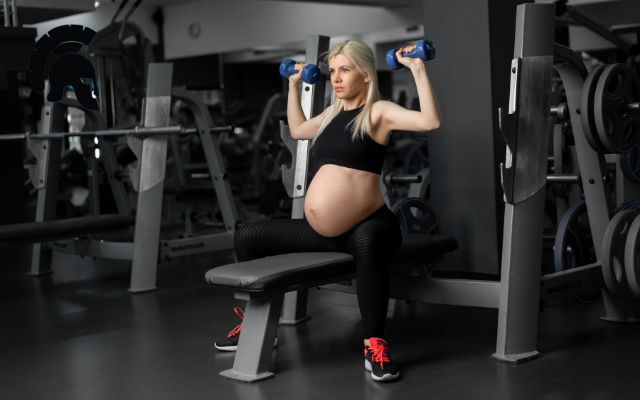You’re glowing, you’re growing, and you’re likely feeling amazing. Exercise during pregnancy is crucial for both your well-being and your baby’s health. Many women crave that extra boost, that extra energy, and pre-workout supplements often seem like a simple solution. However, is this a shortcut worth taking? I’m here to tell you, dear expectant mother, that pre-workout supplements are generally not recommended during pregnancy due to the potential risks and limited research on their safety.
Key Ingredients in Pre-Workout Supplements
Pre-workout supplements are often a potent cocktail of ingredients, promising an energy boost, enhanced performance, and improved muscle function. However, these promises can come with risks when consumed during pregnancy. Let’s delve into some key components:
Caffeine
A common pre-workout ingredient, caffeine can significantly affect your body—and the growing baby inside you. You and I know that high doses of caffeine can cause anxiety, jitters, and potentially lead to insomnia. When you’re pregnant, I want you to know that this isn’t the safest option, as caffeine can cross the placenta and potentially harm fetal development. The American College of Obstetricians and Gynecologists (ACOG) recommends limiting caffeine intake to 200 mg per day during pregnancy, and many experts would recommend avoiding caffeine completely.
Creatine
Creatine is another frequent pre-workout component. However, research on its safety during pregnancy is limited. Its potential effects on the developing fetus are not entirely understood. You and I need further study to determine the potential risks in pregnancy.
Stimulants
Ingredients like yohimbine and synephrine are often touted for their thermogenic properties. You and I recognize the potential adverse impacts on cardiovascular health. Even small doses during pregnancy may potentially impact your health and the developing baby’s development. I strongly suggest avoiding supplements containing these ingredients.
Other Ingredients
Citrulline malate and beta-alanine are often found in pre-workout formulas. Again, the research on their safety in pregnancy is limited. I suggest sticking to proven, safe, and healthier alternatives.
Is Pre Workout Safe For Pregnancy?
Pre-workout supplements during pregnancy can be risky. While some experts suggest that certain pre-workouts may be safe if they contain specific ingredients, caution is essential. High caffeine levels, common in many pre-workouts, can pose risks such as miscarriage and low birth weight. Additionally, unregulated ingredients and artificial additives can be harmful.
Pregnant women should consult healthcare providers before using any pre-workout supplements and focus on natural sources of energy, like whole foods. It’s crucial to prioritize safety for both the mother and the developing baby during this time.
Potential Risks of Pre-Workout Use During Pregnancy
1. Unregulated Ingredients
Many pre-workout supplements contain a variety of ingredients that may not be safe for pregnant women. Since the supplement industry is less regulated than pharmaceuticals, some products may include substances that have not been adequately tested for safety during pregnancy. This uncertainty can lead to potential harm to both the mother and baby.
2. High Caffeine Levels
Excessive caffeine intake is a significant concern during pregnancy. High doses of caffeine, often found in pre-workout supplements, can increase the risk of complications such as miscarriage, low birth weight, and developmental issues. Pregnant women are generally advised to limit caffeine consumption to 200 mg per day, which is easily exceeded with many pre-workout formulas.
3. Artificial Sweeteners and Additives
Many pre-workout drinks contain artificial sweeteners and additives, such as aspartame and saccharin, which are best avoided during pregnancy. These substances have been linked to potential health risks, including allergic reactions and other adverse effects. Pregnant women are encouraged to choose natural sweeteners and whole foods to minimize exposure to harmful additives.
4. Branched-Chain Amino Acids (BCAAs)
BCAAs are commonly included in pre-workouts but are generally considered unsafe during pregnancy due to insufficient research on their effects. Some studies suggest that BCAAs may negatively impact fetal development or contribute to insulin resistance, making them a risky choice for pregnant women.
5. Stimulants and Other Ingredients
Pre-workouts often contain stimulants like yohimbine and synephrine, which can be harmful during pregnancy. These substances may elevate heart rate and blood pressure, posing additional risks for pregnant women. Other ingredients like beta-alanine can cause discomfort, such as tingling sensations, which may not be suitable during pregnancy.
Alternative Options for Your Pregnancy
You don’t need pre-workout supplements for the energy boost your body needs during pregnancy. Here are safer alternatives:
Balanced Diet
A well-balanced diet rich in fruits, vegetables, and whole grains provides sustained energy and essential nutrients for you and your baby. Proper nutrition is key.
Hydration
Adequate hydration is crucial for both your physical well-being and your baby’s development. Drink plenty of water throughout the day.
Prenatal Vitamins
Prenatal vitamins provide crucial nutrients for your developing baby. Be sure you’re taking a safe and effective prenatal vitamin.
Safe Exercise Regimen
Consult your doctor to determine a safe and effective exercise regimen tailored to your individual needs and the stage of your pregnancy. They can advise you on suitable activities and intensity levels.
Consulting Professionals
Before considering any supplements pre-workout or otherwise during pregnancy, consulting with a healthcare professional is paramount. I want you to prioritize your and your baby’s health. Your doctor can assess your individual needs and provide personalized recommendations. They can give you the green light or recommend alternative options.
Safe Pre-workout Options For Pregnancy
For pregnant clients seeking a safe pre-workout option, natural, nutrient-rich foods are your best bet to fuel your exercise while supporting your body’s unique needs.
A banana is perfect for quick energy and potassium to help prevent muscle cramps. A smoothie made with yogurt, fruit, and oats provides a balanced blend of protein, carbs, and fiber for sustained energy. Whole-grain toast with nut butter is another excellent choice, delivering healthy fats and slow-digesting carbs.
You might also try a handful of trail mix with nuts and dried fruit for a portable snack or plain Greek yogurt topped with honey and granola for a satisfying energy boost. Pair these with plenty of water and remember, the goal is to feel energized, not overly full, so keep portions moderate.
Conclusion
We both know that a healthy pregnancy is a journey that necessitates careful consideration of every aspect of your health. While exercise is vital, pre-workout supplements are generally not recommended during pregnancy. The potential risks including cardiovascular effects, dehydration, and possible interference with fetal development outweigh any perceived benefits. It is the best way to ensure a healthy pregnancy for you and your precious baby. Consult a healthcare provider for personalized guidance.








